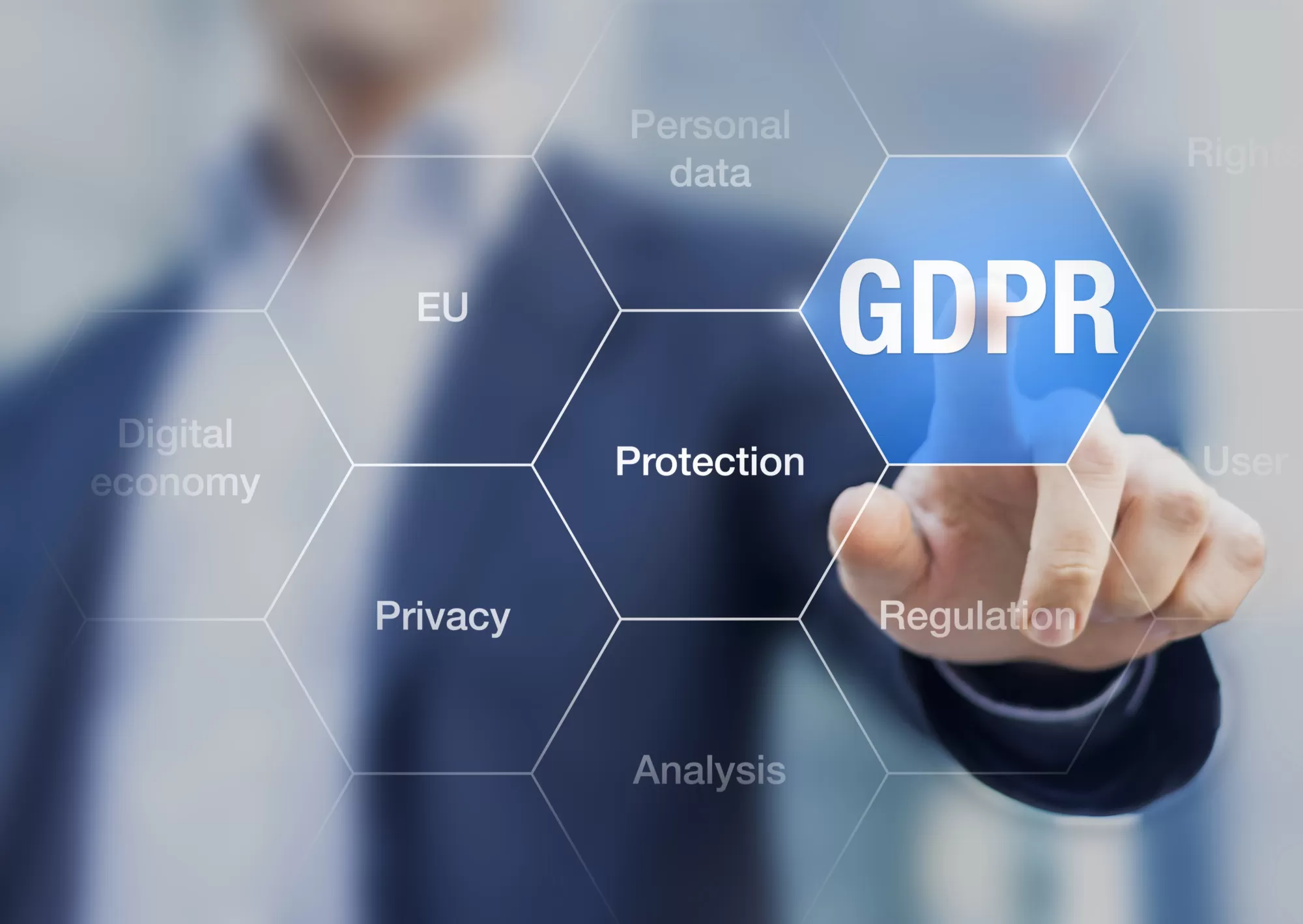

GDPR General Data Protection Regulation for European Union concept, security of personal information and identity on internet
According to recent data, there have been 89,271 data breach notifications since May 2018, showing the importance and significance of GDPR.
If you’re like most businesses, you’re probably wondering what this means for you and your organization. Will the GDPR require you to make changes to how you collect and store data? What are the penalties for not complying with the GDPR?
Well, don’t worry. We’ve got you covered. Keep reading this GDPR overview as we’ll provide an overview of the GDPR and answer some of the most common questions about GDPR regulations.
The General Data Protection Regulation (GDPR) is a new EU data protection law that came into effect on May 25, 2018. The GDPR replaces the 1995 EU Data Protection Directive. It strengthens EU data protection rules by giving individuals more control over their data and establishing new rights for individuals.
You can find out more about the GDPR and its applicability on the EU Data Protection website. Take your time going through all the information, and seek counsel from specialists in that field if you are struggling with anything.
The GDPR applies to all organizations that process the personal data of EU citizens, regardless of where the organization is located. This includes controllers and processors within the EU, as well as organizations located outside the EU that process the personal data of EU citizens.
We know that GDPR can seem daunting, but don’t worry! Here are the key requirements of GDPR that you need to know:
Consent: Organizations must obtain explicit consent from individuals before collecting, using, or sharing their data. Consent must be freely given, specific, informed, and unambiguous. It must also be easy to withdraw consent.
Right to Access: Individuals have the right to access their data and information about how it is being processed. They also have the right to request a copy of their data in a machine-readable format.
Right to rectification: Individuals have the right to rectify wrong or incomplete data.
Right to Erasure (or “Right to Be Forgotten”): Individuals have the right to request that their personal data be erased, subject to certain exceptions.
Right to Restriction of Processing: Individuals have the right to restrict the processing of their personal data, subject to certain exceptions.
Right to Data Portability: Individuals have the right to receive their personal data in a portable format, and to transmit it to another controller.
Right to Object: Individuals have the right to object to the processing of their personal data for marketing purposes, and profiling.
The GDPR will be enforced by national data protection authorities (DPAs), which are responsible for investigating complaints and enforcing the GDPR. The GDPR gives DPAs broad powers to investigate complaints and take enforcement action, including issuing fines of up to 4% of a company’s global annual revenue or €20 million (whichever is greater), whichever is greater.
Non-compliance with the GDPR can result in significant financial penalties. Organizations that violate the GDPR can be fined up to 4% of their global annual revenue or €20 million (whichever is greater), whichever is greater.
Also, non-compliance can damage an organization’s reputation and may lead to customer defections.
Businesses can prepare for GDPR by ensuring they have a good understanding of the GDPR requirements and putting in place processes and systems to comply with those requirements. They should also train their staff on GDPR, and conduct a data protection audit to identify personal data and how it is being processed.
Individuals need to know that they have the right to access their personal data, the right to rectify inaccurate or incomplete data, the right to erase their data (subject to certain exceptions), and the right to restrict the processing of their data. They should also be aware of the rights afforded to them under GDPR, such as the right to data portability and the right to object.
The GDPR will strengthen EU data protection rules by giving individuals more control over their personal data, and establishing new rights for individuals. It will also increase the fines that can be levied for non-compliance, and broaden the scope of the GDPR to apply to organizations located outside of the EU that process the personal data of EU citizens.
If you don’t apply GDPR, you will be fined. It will be very costly to not apply GDPR once it is in full effect. You can start preparing now by understanding the requirements and putting the necessary processes and systems in place. You should also train your staff on GDPR, and conduct data audits to identify personal data and how it is being processed.
Finally, businesses should review their data-sharing agreements with third-party organizations, and update them as needed to ensure compliance with GDPR.
GDPR strengthens EU data protection rules by giving individuals more control over their personal data and establishing new rights for individuals. If you collect, use, or store the personal data of individuals in the EU, you must comply with the GDPR unless you can demonstrate that you meet certain conditions.
You may need to make changes to your business processes and technology to ensure compliance.
We hope this GDPR overview has helped simplify the GDPR process.
Want more business articles like this? Check out our blog.
Hey there! Ready to embark on a historical journey with Air India? Whether you're a…
In 2017, altcoins were seen as experimental side projects to Bitcoin. By 2021, they became…
Shopping centers in Las Vegas have a unique opportunity to stand out by offering not…
Levitra, a widely recognized medication for treating erectile dysfunction (ED), has proven to be a…
Have you ever looked down at your carpet and wondered if there’s a budget-friendly way…
Counter-Strike 2 (CS2) has elevated the thrill of case openings, captivating both seasoned CS:GO veterans…